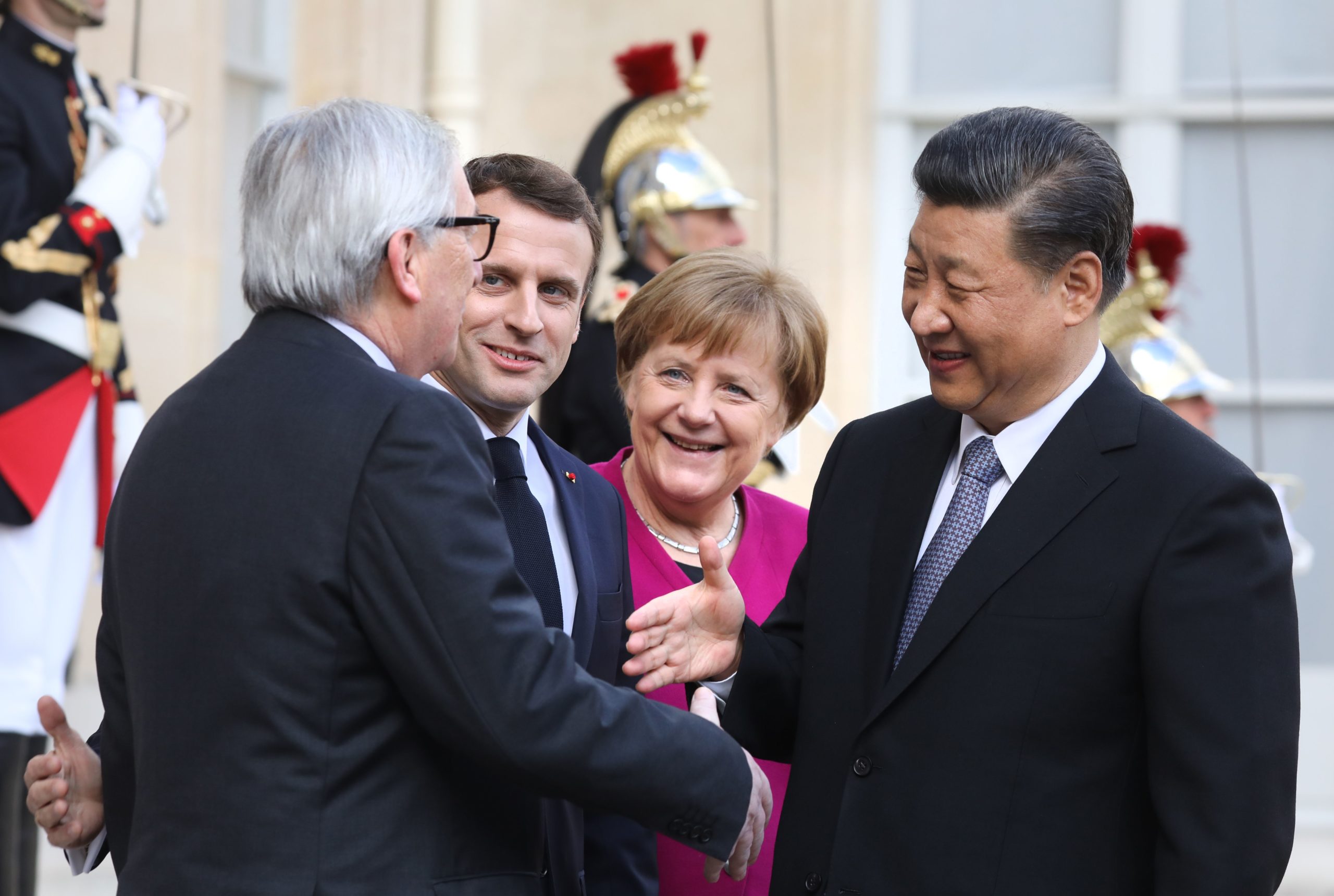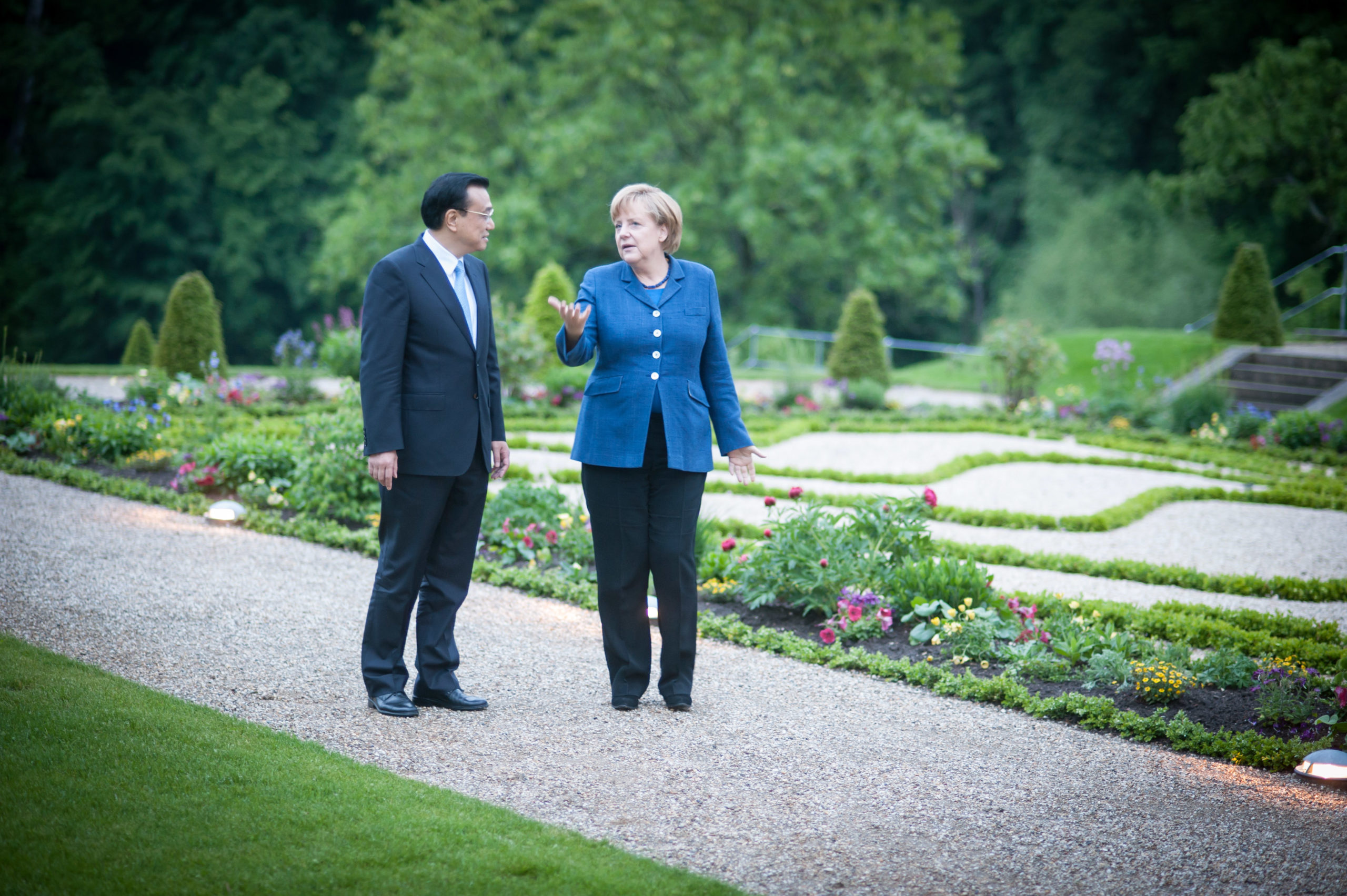A high-ranking German reportedly official suppressed a highly sensitive report that examined wide-reaching Chinese influence in Germany out of fear that the report would damage business relations with China, Axios reported.
The 2018 report examined the Chinese government’s attempts to influence every level of German government, society, and business, two former U.S. intelligence officials said according to Axios.
German Chancellor Angela Merkel was among the few people to have viewed the report, but it was suppressed by the official, preventing it from being spread widely within the German government.

TOPSHOT – French President Emmanuel Macron (2ndL) welcomes EU Commission President Jean-Claude Juncker (L), German Chancellor Angela Merkel (C) and Chinese President Xi Jinping (R) before a meeting at the Elysee Palace in Paris on March 26, 2019. LUDOVIC MARIN/AFP via Getty Images
The report highlighted the close ties between German business and Beijing, which depends heavily on exports, with nearly $100 billion worth of goods sent to China in 2019, accounting for more than half of the value of all European Union exports to the country, Politico reported. Many German companies also produce in China, where Volkswagen operated a factory in Urumqi, the Chinese city where reports have emerged from throughout the Xinjiang province of forced labor and other human rights abuses targeting the ethnic minority Uighurs.
The German auto giant said in November 2019 that its decision to open the facility in Urumqi was “based purely on economics” and that the company expects “further economic growth in the region over the coming years,” Deutsche Welle reported. Volkswagen also said it did not “assume any of our employees are forced laborers.” (RELATED: Investigation Finds That China Uses Uighur Labor To Produce Masks: Report)
The economic relationship has influenced much of Germany’s policy toward China, prompting the country’s leaders to downplay the mounting evidence that Beijing is overseeing abuses in Xinjiang, according to Axios, although the relationship is changing in 2020.
“There has been a lot of self-censorship in Germany with regard to China,” Noah Barkin, an expert on Europe-China relations at the Rhodium Group, said according to Axios. “Merkel’s approach has been to criticize China behind closed doors, rather than in public.”

MESEBERG, GERMANY – MAY 26: In this photo provided by the German Government Press Office (BPA), German Chancellor Angela Merkel and Chinese Prime Minister Li Keqiang talk at the start of their meeting in the garden of Meseberg government guest house on May 26, 2013 in Meseberg, Germany. (Photo by Bergmann/Bundesregierung-Pool via Getty Images)
Beijing’s security law in Hong Kong, reporting about “re-education camps” in Xinjiang, and fears that Beijing could exports its surveillance state to Germany via 5G technology have created concern among the German public. The coronavirus outbreak that emerged in Wuhan also crystallized the public’s questioning about Germany’s ties with China, especially following Beijing’s effort to cast itself as the rescuer of Europe during the pandemic, according to Politico.
“Germans are coming to the realization that they need to establish red lines, that they need to push China more forcefully, and they need to emphasize human rights.”


